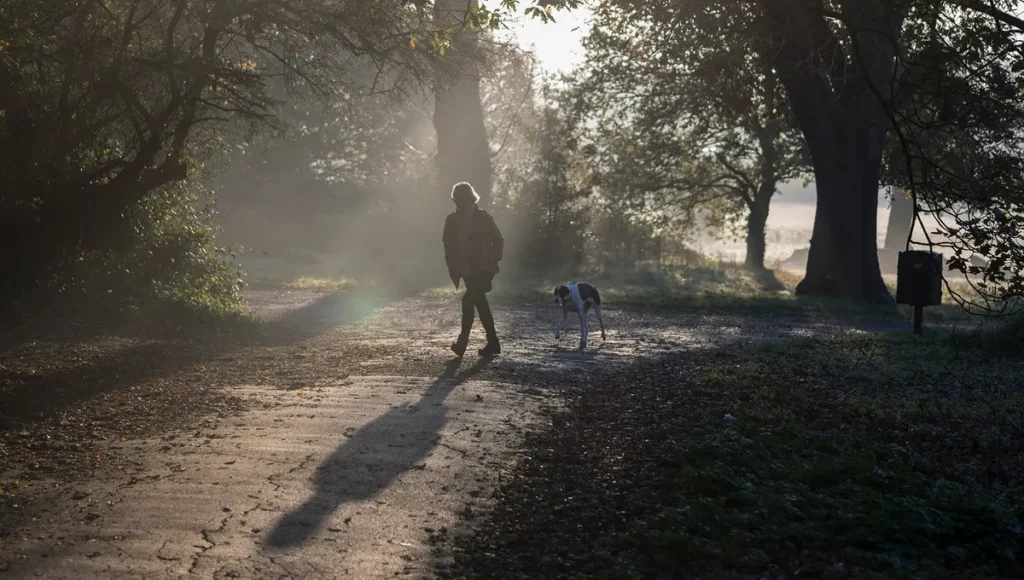As the warmth of summer begins to wane, it comes to an end, slowly at first and then suddenly. Beach chairs scattered along sandy shores are now folded and stowed away. Kayaks, which used to be a staple of summer adventures, are now put back in the garage. Impromptu camping trips and lazy afternoons slowly become memories. The end of the season often brings with it a sense of loss, a feeling that something has slipped through our fingers.

The concept of mourning the end of summer may seem like a minor matter compared to more traditional forms of grieving, such as the death of a loved one or the end of an important relationship. Still, this change can stir up deep emotions, and it is worth exploring how we can meaningfully acknowledge and cope with this change.
Minding Loss
Loss is a deeply personal experience. While society often emphasizes moving on quickly, returning to work, and resuming daily routines, this approach can overlook the value of fully experiencing and reflecting on our feelings. The end of summer, like any other conclusion, can stir up a deep sense of missed opportunities and unfulfilled moments.
The American cultural norm encourages us to quickly forget our losses, whether they relate to a season, a relationship, or a personal goal. This notion of “getting over it” and moving on is deeply rooted, suggesting that we should simply get back to “normal” and leave our grief behind. But what if we allowed ourselves to pause, reflect, and grieve?
The Validity of Personal Grief
Mourning the end of summer may seem trivial compared to grieving the loss of a loved one or a major life change. However, the significance of a loss is not always measured by its size or visibility. If the end of summer holds emotional weight for you, if it represents missed opportunities or a change in your self-perception, that feeling is valid. It is not to be judged or minimized by others.
For many, summer symbolizes a sense of freedom and possibility. It is a time of relaxation and adventure, a break from routine that offers new experiences and fond memories. When it is over, it can feel like a part of us has been left behind, making it important to recognize and honor those feelings.
Finding meaning in reflection
When facing loss, one of the most beneficial exercises is reflection. As summer is coming to an end, I found myself returning to an old habit of mine: journaling. Writing about recent experiences has helped me understand my feelings and reflect on what has been meaningful.
I’ve recorded various moments from this summer: a quiet morning walk on Stinson Beach in California, watching professional bull riding in Cheyenne, and a magical encounter with fireflies on a late-night walk. These reflections are not just a record of what I did; they are a way to understand what those experiences meant to me and how they shape my sense of self.
Journaling and reflecting on past experiences helps us understand our values and guide our future choices. This practice is consistent with the Buddhist concept of the “process of creation,” where our actions and reflections shape our future. Rather than simply moving on from a loss, looking at our past experiences can help us create a more meaningful future.
The universality of grief
Everyone experiences loss, whether it’s a significant event or something more subtle. The poet Mary Oliver wrote, “There is always too much grief, / for each of us / to carry a burden of heart on the dusty road.” A 2019 survey showed that more than 70 percent of Americans had grieved a life event in the past three years. This includes losses such as the death of a loved one, the end of a relationship, or the loss of a job. Smaller grief, such as the end of a favorite season or the loss of a beloved object, also contribute to our emotional landscape.
Recognizing the pervasiveness of loss in our lives can promote empathy and understanding. It reminds us that everyone is dealing with their own kind of grief, making it important to treat others with kindness and compassion.
The Power of Reflection
Often, we underestimate the importance of revisiting our past experiences. A Harvard Business School study asked college students to create “time capsules” containing reflections on recent experiences. The students initially anticipated that they would have no interest in rereading these capsules. However, three months later, they found that the capsules were far more interesting and meaningful than they expected. This suggests that we often fail to understand the importance of reflecting on our past.
Reflecting on what has come before us can ease worries and provide clarity. Shakespeare captured this idea in “Macbeth,” where he wrote, “The grief that speaks not / Whims the full heart and breaks it.” By giving voice to our grief and reflecting on our experiences, we allow ourselves to process our emotions more fully.